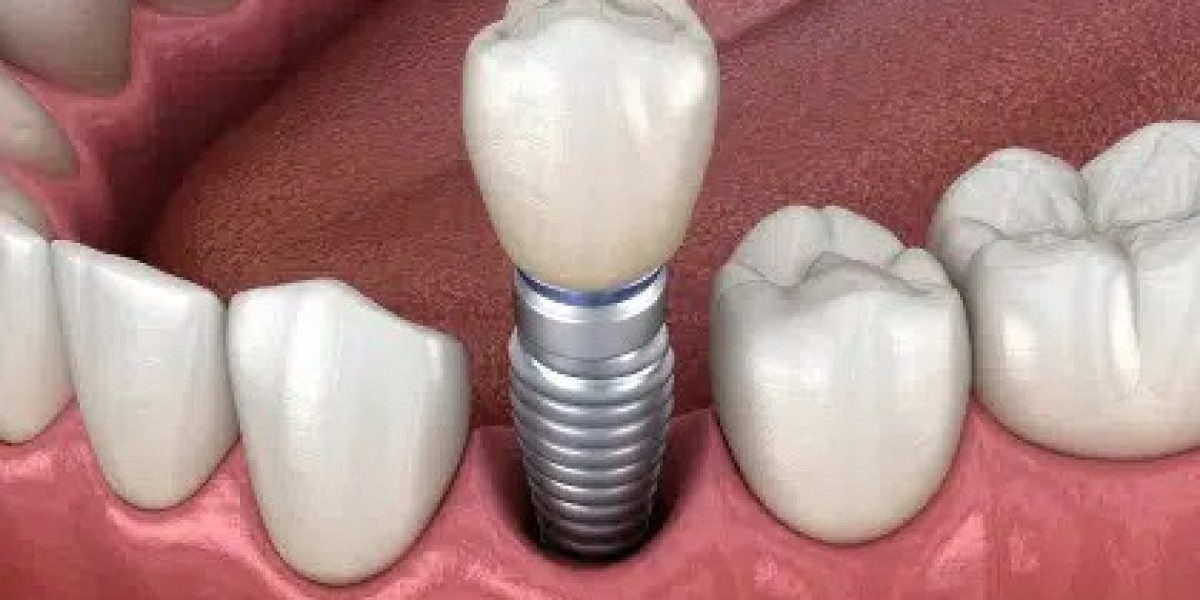A broken or chipped tooth can happen suddenly, whether you’re enjoying your favourite snack, playing sports, or involved in an unexpected accident. While some small chips may seem harmless, ignoring them can lead to bigger problems like tooth decay or infection. Acting fast is the key to saving your tooth and preventing further damage.
In this blog, we will walk you through everything you need to know if you break or chip a tooth — from immediate home care to professional treatments — with tips to keep your smile safe and healthy.
Why Quick Action Matters in a Dental Emergency
Many people think a chipped tooth is just a cosmetic issue, especially if there’s no pain. But even a minor crack can expose the inner layers of your tooth, making it vulnerable to bacteria, infection, and decay. If left untreated, it may develop into a larger problem, possibly needing a root canal or even a tooth extraction.
That’s why it’s so important to contact an emergency dentist Cardiff as soon as possible. A quick visit can relieve pain, restore the tooth, and prevent further damage.
Common Reasons for Broken or Chipped Teeth
Understanding what causes chipped or broken teeth can help you avoid them in the future. Here are some of the most common reasons:
- Accidents and Trauma
Falls, sports injuries, or car accidents can easily cause damage to your teeth. If you’re active in sports, wearing a mouthguard is a smart way to protect your teeth. - Biting Hard Foods
Chewing on hard foods like ice, hard sweets, or popcorn kernels can put pressure on your teeth, causing them to crack, especially if they’re already weakened. - Tooth Decay or Old Fillings
Weakened or decayed teeth are more prone to breaking. Old fillings can also compromise the tooth’s structure, making it easier for small chips or cracks to form. - Teeth Grinding (Bruxism)
Grinding your teeth at night wears down the enamel, increasing the chance of chips and fractures over time.
Immediate Steps to Take if You Break or Chip a Tooth
If you’ve chipped or broken a tooth, follow these steps to protect the tooth and manage the situation until you can see a dentist.
- Rinse Your Mouth
Gently rinse your mouth with warm water to clean the area and remove any debris. - Apply a Cold Compress
If you have swelling, place a cold compress on the outside of your mouth or cheek to help reduce it. - Save Any Tooth Fragments
If you find pieces of your tooth, store them in a small container with milk or a saline solution. Your dentist may be able to reattach them. - Cover Sharp Edges
If the broken tooth has sharp edges, cover it with dental wax or sugar-free chewing gum to avoid cutting your tongue or cheek. - Manage Pain
Take over-the-counter pain relievers like ibuprofen or paracetamol to ease discomfort. Avoid aspirin, as it can increase bleeding. - Avoid Eating on That Side
Try not to eat or drink on the side with the damaged tooth to prevent more harm until you visit the dentist.
When Should You See an Emergency Dentist?
While not all chipped teeth are urgent, some signs mean you should see an emergency dentist straight away:
- Severe Pain
If you’re in strong pain, especially when eating or drinking hot or cold items, it may indicate nerve damage that needs immediate attention. - Bleeding That Won’t Stop
If the tooth or surrounding gums are bleeding and it won’t stop after applying gentle pressure, seek urgent dental care. - Large Portion of Tooth Missing
If a large piece has broken off, the sensitive inner part of the tooth might be exposed, increasing the risk of infection. - Cracks Reaching the Gum Line
Deep cracks that go down to the gum line can threaten the stability of the tooth and require prompt treatment.
How Dentists Repair Broken or Chipped Teeth
Your dentist will recommend a treatment depending on the extent of the damage. Common treatments include:
- Dental Bonding
For small chips, dental bonding is often used. A tooth-coloured resin is shaped onto the tooth and hardened with a special light, restoring both function and appearance. - Dental Veneers
For larger chips, especially on front teeth, veneers are a good option. Veneers are thin porcelain shells that cover the front of the tooth, improving both its strength and look. - Dental Crowns
If the tooth is badly damaged or weakened, a dental crown (a cap) may be placed over it to restore its shape, strength, and function. - Root Canal Treatment
If the inner pulp is damaged or infected, a root canal may be needed. The dentist will clean out the infected pulp, seal the tooth, and usually place a crown over it. - Tooth Extraction and Implants
If the tooth cannot be saved, it may need to be extracted. After removal, your dentist might recommend a dental implant to replace the missing tooth, ensuring long-term function and appearance.
How to Prevent Broken or Chipped Teeth
Prevention is always better than a cure. Here are some simple tips to help keep your teeth strong and avoid future damage:
- Wear a Mouthguard
If you play sports, invest in a custom-made mouthguard to protect your teeth. - Avoid Chewing Hard Objects
Don’t chew on ice, pens, or hard sweets. These habits can weaken your teeth and make them more prone to breaking. - Treat Teeth Grinding
If you grind your teeth at night, talk to your dentist about getting a night guard to protect them. - Maintain Good Oral Hygiene
Brush twice daily, floss regularly, and visit the best dentist in Cardiff for routine check-ups to keep your teeth healthy and strong.
Managing Tooth Pain and Sensitivity Before Your Appointment
If you’re waiting to see your dentist and are experiencing pain or sensitivity, here’s how to manage it at home:
- Take Painkillers
Use over-the-counter pain relievers like ibuprofen or paracetamol. Follow the instructions on the label carefully. - Avoid Hot and Cold Foods
Stick to foods and drinks that are room temperature, as very hot or cold items can trigger pain. - Eat Soft Foods
Choose soft foods like soups, mashed potatoes, or yoghurt, and avoid hard, crunchy, or sticky foods until the tooth is fixed. - Use Clove Oil
Applying a small amount of clove oil to the affected area can provide temporary relief.
Final Thoughts
A broken or chipped tooth can feel stressful, but by acting quickly and following the right steps, you can protect your dental health and avoid long-term problems. Whether it’s a minor chip or a major break, contacting an emergency dentist in Cardiff as soon as possible is the best way to ensure proper care.
If you’re looking for expert dental care, trust Super Smile Dental to help restore your smile and keep your teeth healthy. Book your appointment today and get the professional care you need.









